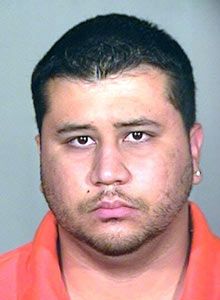 By now, we've all heard about the tragic encounter which took place on the night of 02/26/2012. Trayvon Martin, a 17-year-old African American high school student, was followed, shot, and killed by George Zimmerman, a 28-year-old mixed-race Hispanic neighborhood watch coordinator.
By now, we've all heard about the tragic encounter which took place on the night of 02/26/2012. Trayvon Martin, a 17-year-old African American high school student, was followed, shot, and killed by George Zimmerman, a 28-year-old mixed-race Hispanic neighborhood watch coordinator.Police arrived within two minutes of the gunshot capped scuffle and took Zimmerman into custody After being treated for head injuries, Zimmerman was questioned for five hours, but eventually released under the theory the shooting had been in self-defense.
Six weeks, and one media blitz, later, Zimmerman was charged with murder. On July 13, 2013, Zimmerman was found not guilty on all counts, including second-degree murder and manslaughter.
Commentators and civil rights leaders have dominated the airwaves, since the verdict was handed down, trying to make some sense of the outcome. Some blame Rachel Jeantel's slang heavy testimony for stealing credibility from the prosecution's case. Others are simply content to write the jurors off as being ignorant racists who blame Trayvon's mode of dress for the incident.
Like many people, I saw bits and pieces of the trial, on MSNBC, while drinking my morning coffee. While I personally think Zimmerman was guilty of manslaughter, having watched bits of testimony here and a trial motion there, I don't feel as though I saw enough of the proceedings to be able to second guess the jury.
I didn't see the evidence which led the jury to their conclusion, so I don't know whether they got it right. What I do know is that ongoing public speculation of racism, and/or botched testimony, can only serve to create bitter feelings and divide people.
If the federal government can make a civil rights case against Zimmerman, more power to them. If law & sociology professors can glean lessons from these events, I think that's great. However, the media and public need to move on. Let's focus on issues which NEED to be addressed, including cabinet seats which remain unfilled, immigration, the military's policy regarding sexual assault, etc...
-
The picture above was created by a government unit of the United States and is in the public domain under U.S. law.
-


